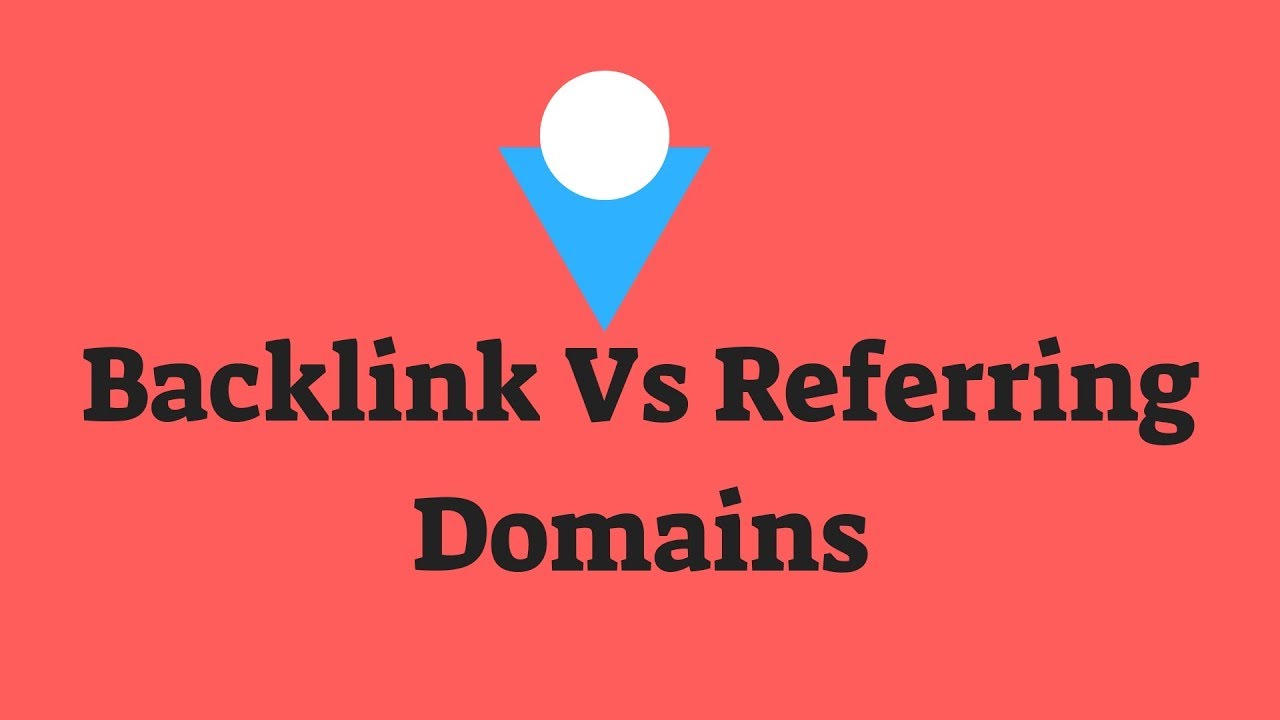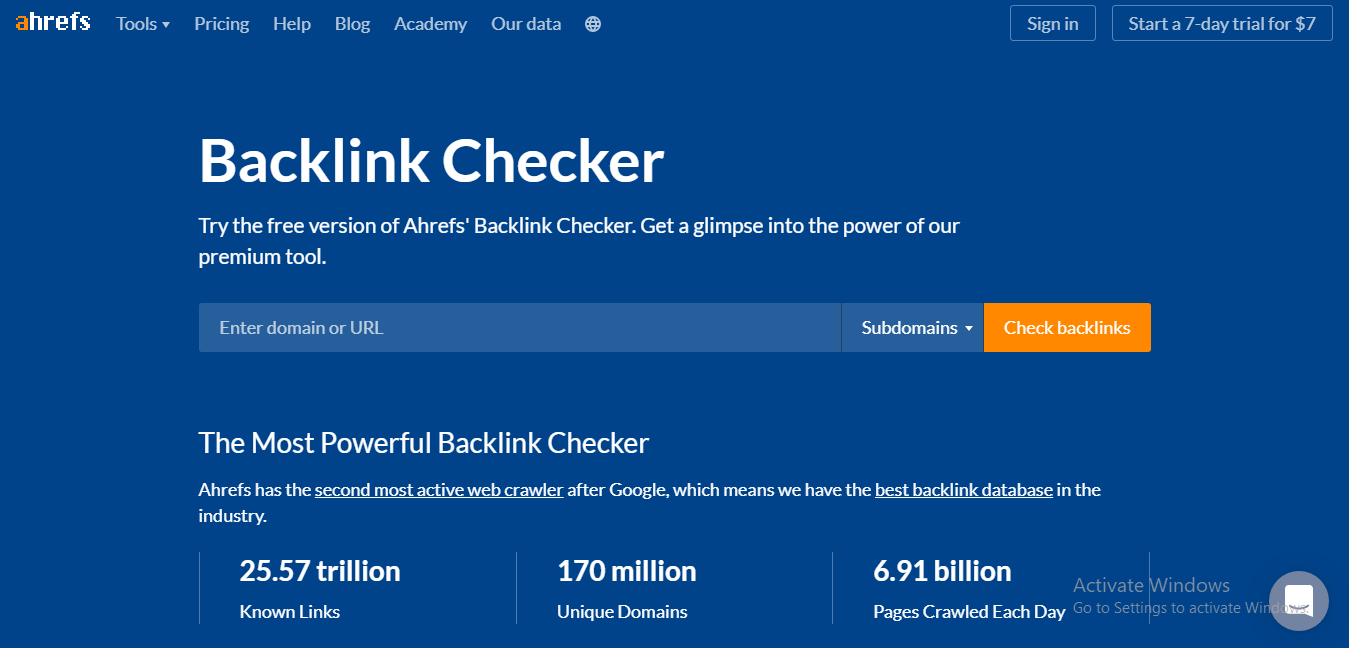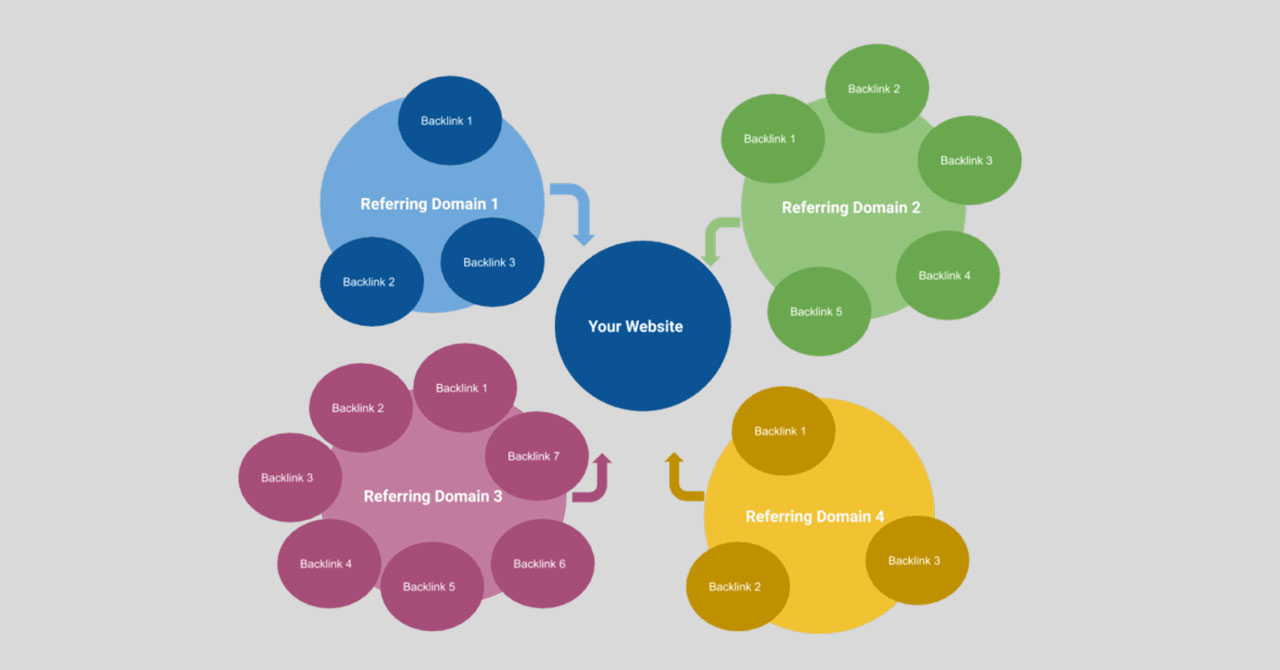What is a Referring Domain?
Understanding the significance of Referring Domain in search engine optimization (SEO) is critical for maintaining high search engine rankings and establishing online authority. The quantity and consistency of your referring domains affect your SEO efforts. Links are not assessed with equal value. This means that two hundred backlinks from a single website are not necessarily superior to one hundred backlinks from separate referring domains.
To increase traffic sources, unique site users, and page views, you must acquire a large number of unique referring domains. Are you confused? Don’t be worried. Here we explore the significance of the quality and quantity of Referring Domain & how you can leverage this SEO metric to boost your digital presence and establish brand credibility.
What is a Referring Domain?
External websites that guide visitors to your site are referred to as “linking domains.” Backlinks from these domains push traffic and visits to your own web pages. Your website may accumulate a number of referring domains, each of which may contain one or more backlinks pointing to your target web pages.
If your website contains links that take visitors to other websites, it could be regarded as a Referring Domain in some situations. For instance, if Site A (external site) has one or two backlinks referring to Site B( your website), it is called a Referring Domain. Regardless of how many backlinks you get from Site A, it is only considered one Referring Domain for your site.
10separate websites that link back to your site, on the other hand, are called ten different referring domains. It is important to note that you have no influence over the number of backlinks per referring domain. Some websites link back to your page solely to add references to their content. Some people confuse backlinks and referring domains as SEO ranking variables. This is understandable given how difficult it can be to distinguish between external backlinks and referring domains at first. But don’t be deceived.
External Backlinks vs. Referring Domains
Backlinks are incoming links from one domain to another. These are links that have been implanted in text, images, buttons, videos, or other page elements. Backlinks are evaluated using a variety of criteria, including relevance, domain authority (DA), site diversity, and link position.
Referring domains – on the other hand, are websites that comprise one or more backlinks to another website. Multiple backlinks from a single domain are possible. You could also have several referring domains referring back to your website at the same time.
A lone Referring Domain may have hundreds, if not thousands, of backlinks referring to your website. A large number of backlinks from a single referring domain, on the other hand, can be called a negative SEO practice or a black-hat link-building technique. In this scenario, you must examine your backlink profiles in order to avoid being penalized by Google.
How to Check Referring Domains and Backlinks
Now that you understand the distinction between external backlinks and referring domains let’s look at how to use the Ahrefs dashboard to review each SEO metric.
To check referring domains, follow these steps:
- Got to Site Explorer
- Enter your domain name
- Click on Referring Domains
To check backlinks, just navigate to the Backlinks report:
Why are Referring Domains Important in SEO?
Referring domains are traffic channels that send signals to search engines and online users about the content and reputation of your web pages. According to Cruz, Google considers a number of factors when determining the accuracy of backlinks. These factors involve the linking domain, the consistency, and relevance of the source, the context of the placement, & the page where the backlink is posted.
Backlinks from leading referring domains are essential if you want to increase organic traffic. According to an Ahrefs report, approximately 90.88 % of pages with no referring domains do not receive organic search traffic from Google. Without high-quality referring domains referring to your target web pages, you are losing out on potential traffic, engagement & sales.
Are Referring Domains SEO Ranking Factors?
Yes. Referring domains are ranking variables in SEO. In reality, these are regarded as high-impact ranking factors that make a real difference in your search engine optimization efforts. Every referring domain counts as a vote of confidence from other sites, according to Google. This means that getting hundreds of websites connecting back to your web pages gives your website an advantage. This does not, however, imply acquiring links from any referring domain. Your link-building strategies should aim to obtain top referring domains that are:
- Relevant to your market
- Trustworthy
- High-quality
- Authoritative
How do they impact your SEO? How to Get More Referring Domains
When done correctly, link building with a referring domain strategy yields useful SEO results. Here are some top recommendations from NYC SEO Pro experts on how to get more valuable referring domains:
- Analyze Your Referring Domains Report
The referring domains report will provide you with a comprehensive list of all domains that connect back to your requested website. After you’ve exported the file, assess the quality & quantity of your referring domains to decide which has the best backlink profile; the more domains with a high authority score, the better. Analyzing the findings of your referring domains report will assist you in identifying additional opportunities for link building.
- Determine Your Top-Performing Pages & Identify Content Gaps
Determine The Best-Performing Pages and Look for Content Gaps
One of the easiest ways to plan the next content marketing strategy & link-building campaign is to identify your top web pages. Your top pages are the most visited pages on your website, as determined by the number of backlinks. A large number of backlinks from top referring domains indicates that your content is well-regarded by other websites and online users. Concentrating your SEO strategy on high-quality content & creating more blog posts and web pages on related topics will strengthen your link-building efforts.
- Create Extraordinary Content
The more important the content on your platform, the more likely it is that you will receive links from top referring domains in your market. The right content marketing strategy will expand your target audience & referral links, increase organic search conversions, and create confidence and online authority. Here are several pointers to help you boost your content marketing activities and obtain more backlinks from distinct referring domains:
- Publish case studies:- these are unique, data-driven content that can help you earn links from industry publications
- Leverage the niche expertise of your team:- tap into their knowledge of industry topics you want to tackle in your content and include direct quotes to boost the authority of your content
- Publish expert roundup posts:- this is one of the most cost-effective ways to earn links from industry specialists and bloggers
- In-depth posts into infographics:- create high-quality infographics that contain actionable takeaways to acquire more backlinks from top-tier publishers & bloggers
You can also look at local news releases, expert interviews, whitepapers, and eBooks. Remember to develop your personal brand and ensure that it is reflected in your content. Webmasters and online consumers would be able to conveniently connect the content with your business this way.
- Boost Your Audience Targeting Methods
The golden rule of SEO is to understand your target audience. To create a straightforward roadmap for your link building and search optimization campaigns, you should consider your target audience’s information needs, demands, and online actions. Otherwise, you’ll be wasting time creating content and constructing meaningless links that will produce no results.
Conduct extensive market research and consumer analysis to assess the preferences, desires, aspirations, and core demographics of your target audiences. This will assist you in targeting the right keywords and narrowing the reach of your link-building efforts.
- Review Your Competitors
To begin, recognize your competitors’ domains. The Ahrefs dashboard displays the number of unique keywords that your competitor has, as well as your similar keywords and the intersection graph. Using this information, you can begin developing your website strategy. One method for determining the number and efficiency of your competition’s referring domains is to evaluate it. Examine their backlink profile to learn how they get more links and rank high in search results. Backlink analysis enables you to learn ways to mimic – or even strengthen link-building strategy.
- Choose Your Ideal Destination Pages
Ascertain which other sites will benefit from your content, how to drive potential growth to your website, and where you want your links to appear. Link building entails more than just distributing the guest posts and links. It is all about selecting credible, top-tier referring domains and making genuine, meaningful connections. Consider the site’s content quality, subjects covered, site layout, and online credibility, among other things.
- Identify the Most Reputable and Popular Referring Domains
This approach will allow you to identify possible backlink sources that can drive further traffic to your target pages. The trick is to create a list of domains within your industry & then categorize them according to your field of expertise. According to a SEMrush survey, university websites, news media, press release delivery systems, and general directories are the most trustworthy referring domains for US law firms. This means that if you own a law firm, these are the key referring domains on which you can position your links and content.
- Invest in the Right Tools
With the right tools, you can scale your link-building campaigns. You can find highly appropriate places to pitch your content by using prospecting and outreach resources.
- Optimize Your Link Building Strategy
Conduct research to create data-driven, updated link-building strategies that will help you develop your brand identity. More specifically, adhere to search engine guidelines and best practices for acquiring additional referring domains.
Our link-building strategy at NYC SEO Pro is based on creating 1:1 unique links on unique Referring Domain. To optimize our backlink strategy, we meticulously curate and qualify the websites for which we work. Partner with us today, and let us assist you in creating your digital profile using the right link-building strategies matching your objectives.







